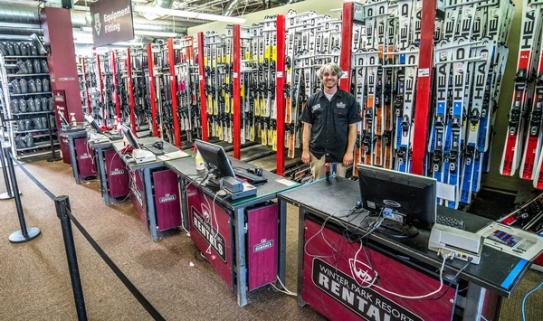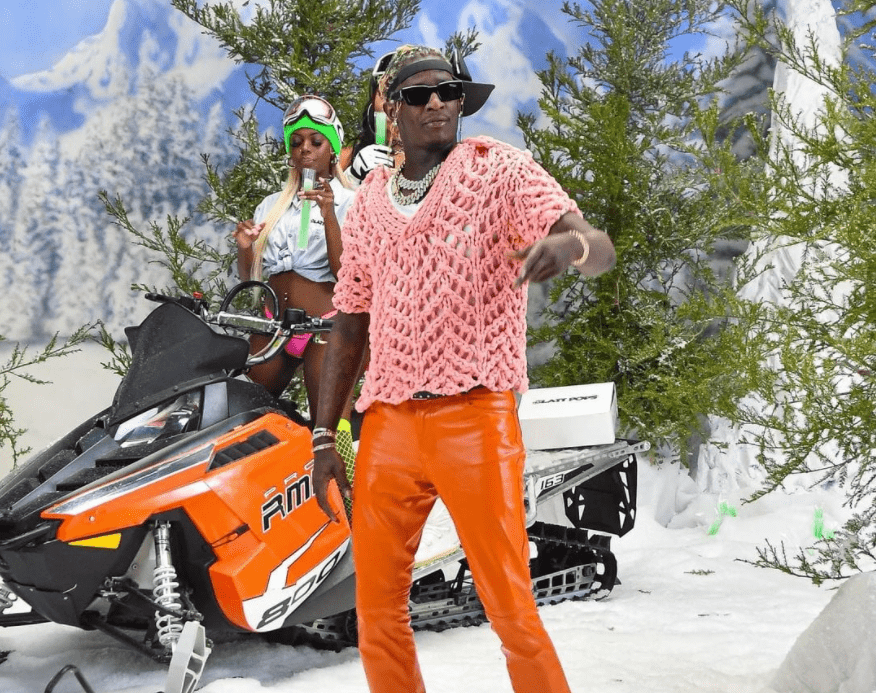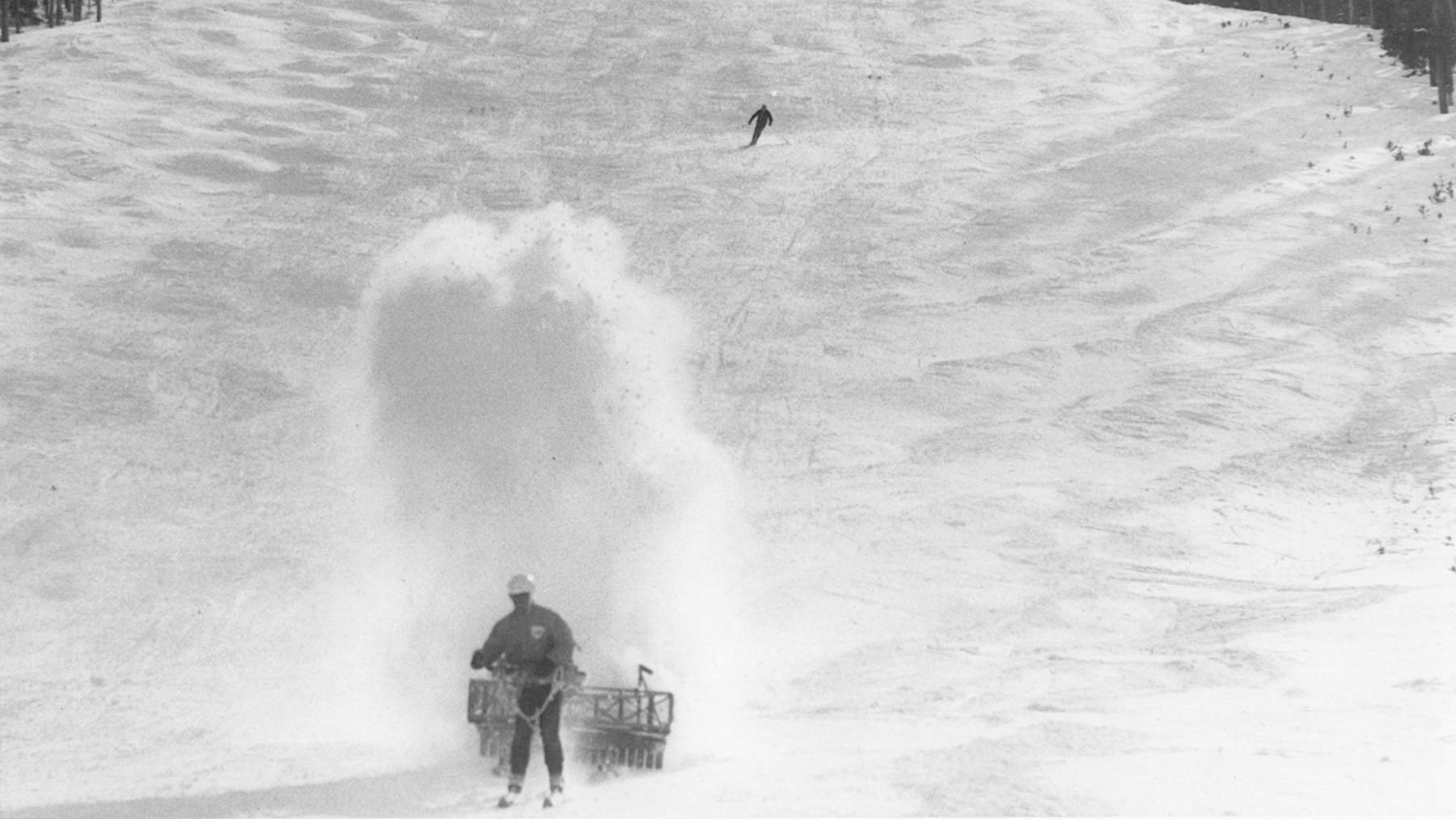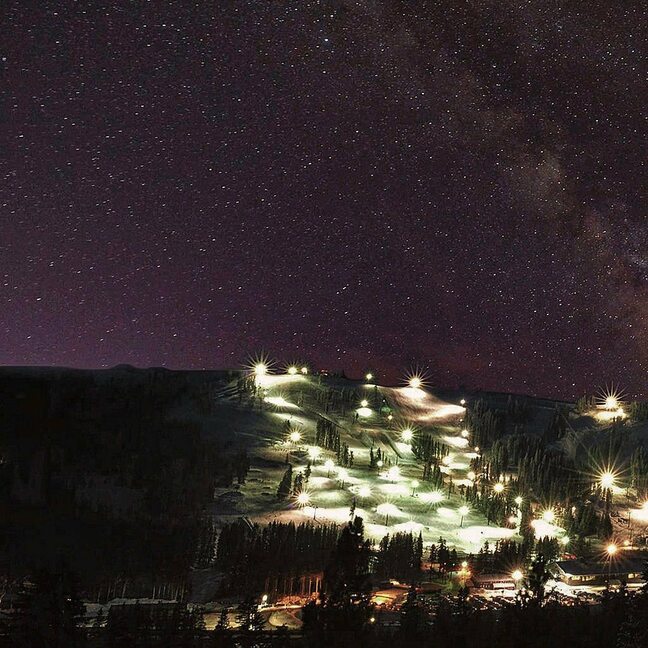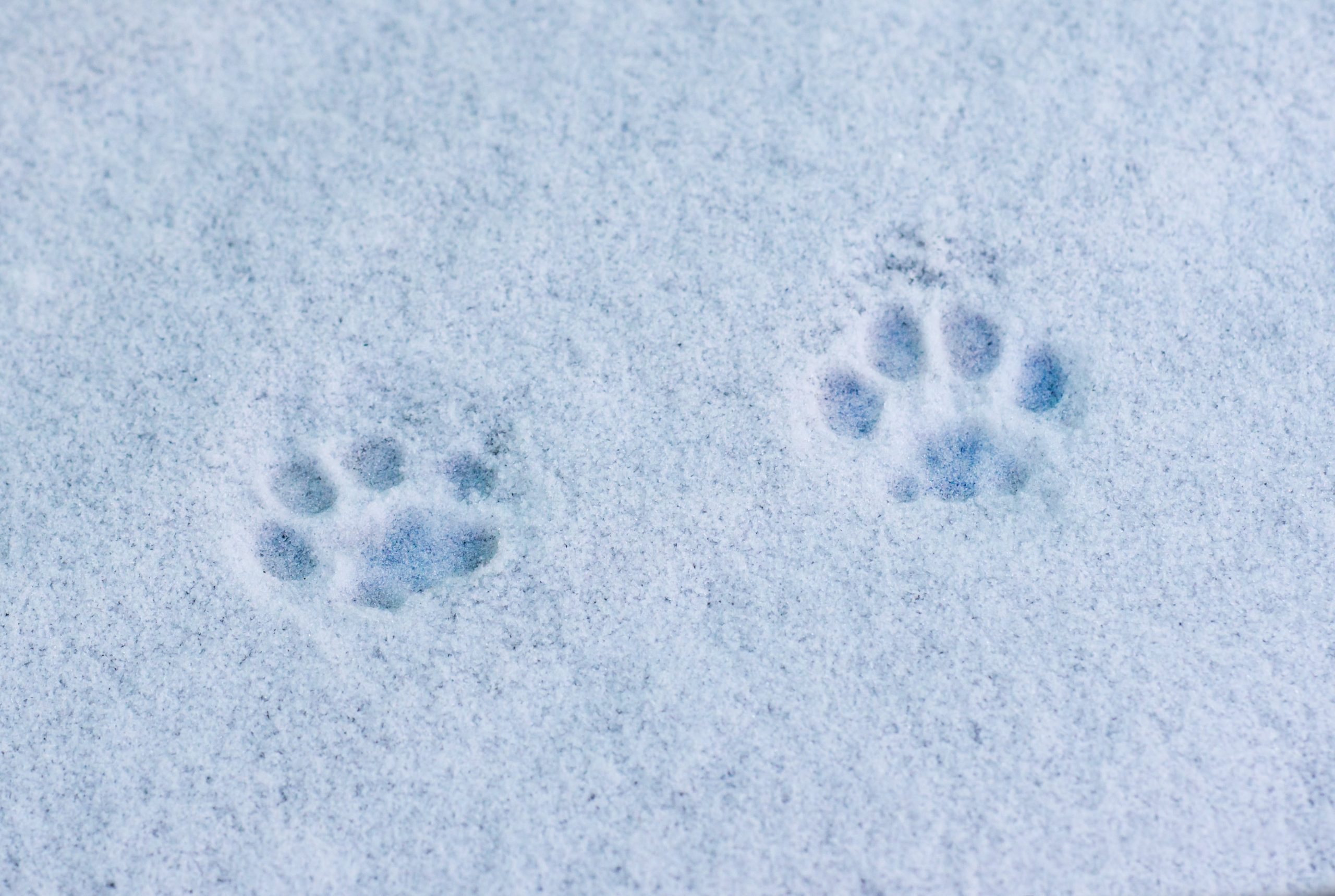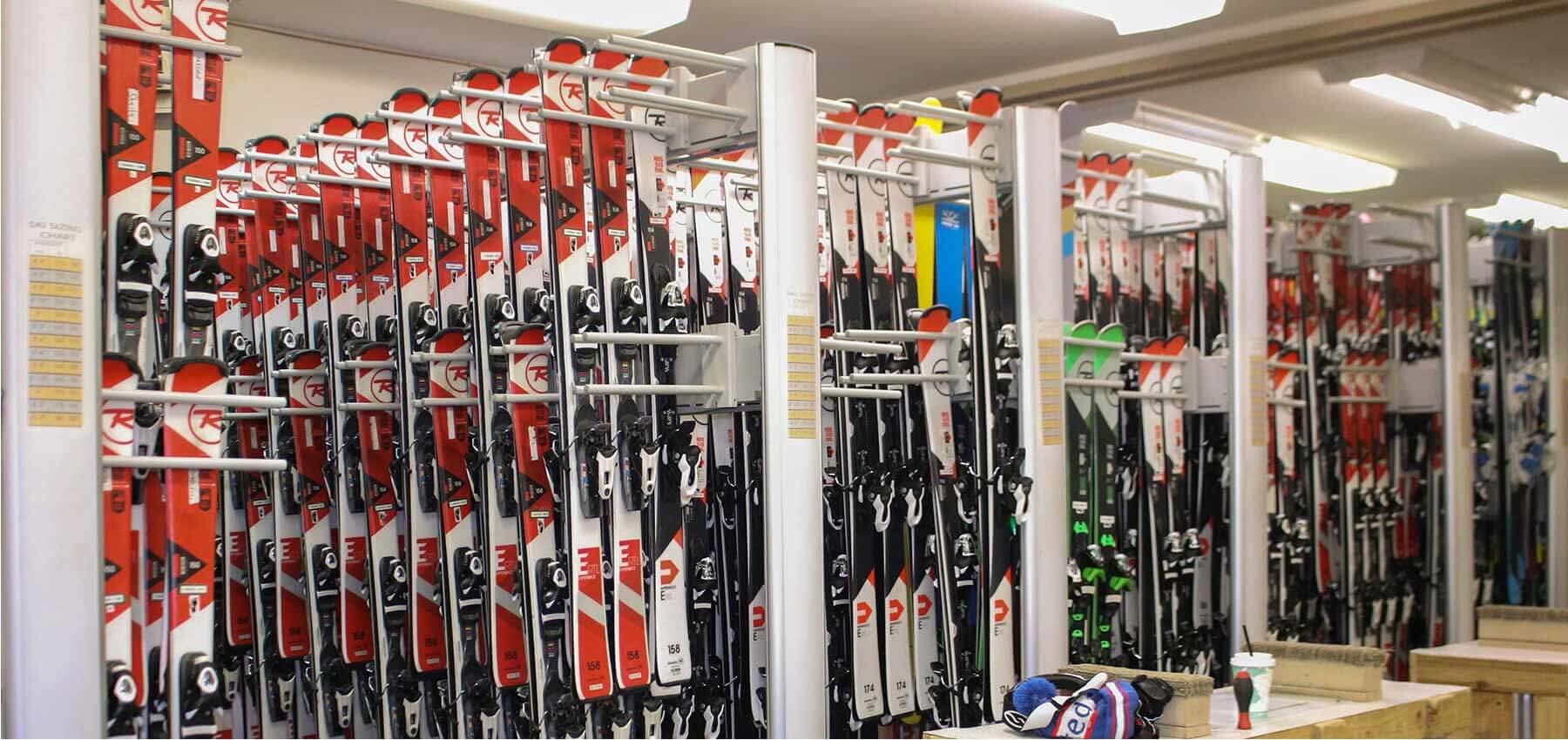
Getting into skiing and snowboarding is expensive, and the amount of gear available can sometimes be mind-boggling. For beginners, renting ski or snowboard gear is sometimes the easiest option, as it can be cheaper than buying and removes the logistics of storing and transporting equipment.
Some people also enjoy renting the latest gear or don’t ski often enough to justify the expense of purchasing their snow gear. Furthermore, renting is convenient, as there are many places to rent from, such as the resort you visit or shops in villages and towns nearby. You can even get season rentals to make it easier if you know you will be skiing consistently for the season.
However, like any other endeavor, there are pitfalls to avoid and tips to follow to make the process easier for everyone involved. Following these rules for renting gear can save money, help you find the best equipment, and make the process as smooth and efficient as possible.
1. Your boots need to fit properly
Almost anyone in the industry will tell you that the fit of your boots is the most important thing when you’re getting into skiing and boarding. Your skis or board are not as important as the fit of your boot. Your on-snow experience will be exponentially better if your boots fit properly.
Boots that are too big will cause your foot to move around in your boot, resulting in a lack of ski control, increased risk for injury, and an uncomfortable fit. Sometimes, big boots will cause more pain than smaller boots because your foot constantly smashes against the front of the boot, and your shins into the tongue, causing a shin bang.
Your boot should be snug around your foot and ankle, and an ideal fit is where your toes are just barely brushing up against the front of the toe box. Your toes should be straight, not crunched, and you should be able to wiggle them around a bit.
2. Get there early/make reservations
Rental shops in resorts get busy, especially during the peak seasons around Christmas and the long holidays. Certain days at my rental shop would see a two-hour wait. Plan ahead by getting to the rental shops early or making reservations. This will ensure you get your gear with the least stress and a more enjoyable experience.
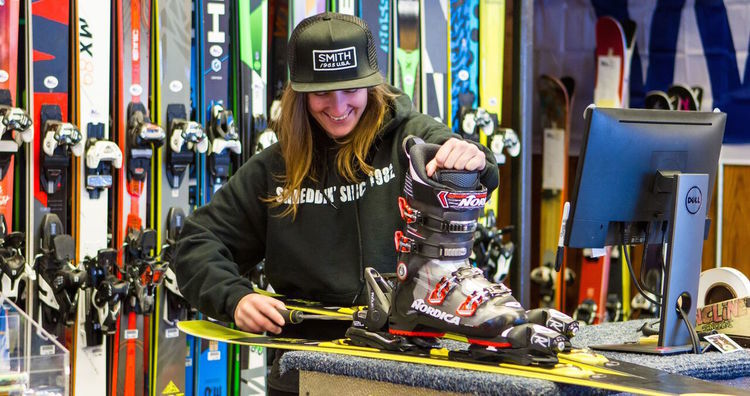
3. Take advice from the fitters/workers
This was always one of the biggest issues I faced working in a rental shop. There’s just something about vacations with families that makes people go mad. I understand it gets hectic, there are lines, and you want to get out on the mountain, but if you don’t listen to your gear fitter or rental technician, you may miss some important tips to have a better time on the ski hill.
Every shop will have rules for renting gear, which can differ slightly from place to place. But in general, it will all be relatively the same information. If you’re a beginner, you must be truthful about how the gear fits, your skill level, and your age, height, and weight because that determines how your bindings are set.
Remember, you can always ask questions, and technicians will show you how things work. An extra few minutes in the rental shop can save you a lot of time on the hill.
4. Season lease
If you know you’ll be skiing more than a few times a winter but don’t want to buy all your gear, season leasing is a great place to start. Most mountains and towns with rental shops will do season leases because, in the long run, it will be easier on both of them.
You can get an idea of the skis you want, and if you feel like you are progressing, you can always talk to the shop to see if you can get something a little more advanced. You won’t have to make reservations and get through the rental lines. Just keep your gear with you, and you’re ready to go. Then, when you’re ready to buy your own equipment, you’ll have a better idea of what you want.
Season leasing will also save you money in the long run. The more you ski that season, the more it will be worth it. It’s also perfect for kids and teens who are still growing. Instead of buying new gear yearly, you can season lease and ensure you get the best-fitting gear.
5. Go back in if something doesn’t feel right
This one is pretty self-explanatory, but it is crucial. If something doesn’t feel right out there, it probably isn’t. One of the biggest reasons we see people return to our shop is when they double eject out of their skis, leave the bindings locked, and cannot put them back on.
Yes, sometimes it’s obvious that something isn’t right, but the rental technicians know that most people in the rental shops are beginners, and things get crazy. So, there are no stupid questions when it comes to beginners and renting gear. It’s all about being safe and having fun.
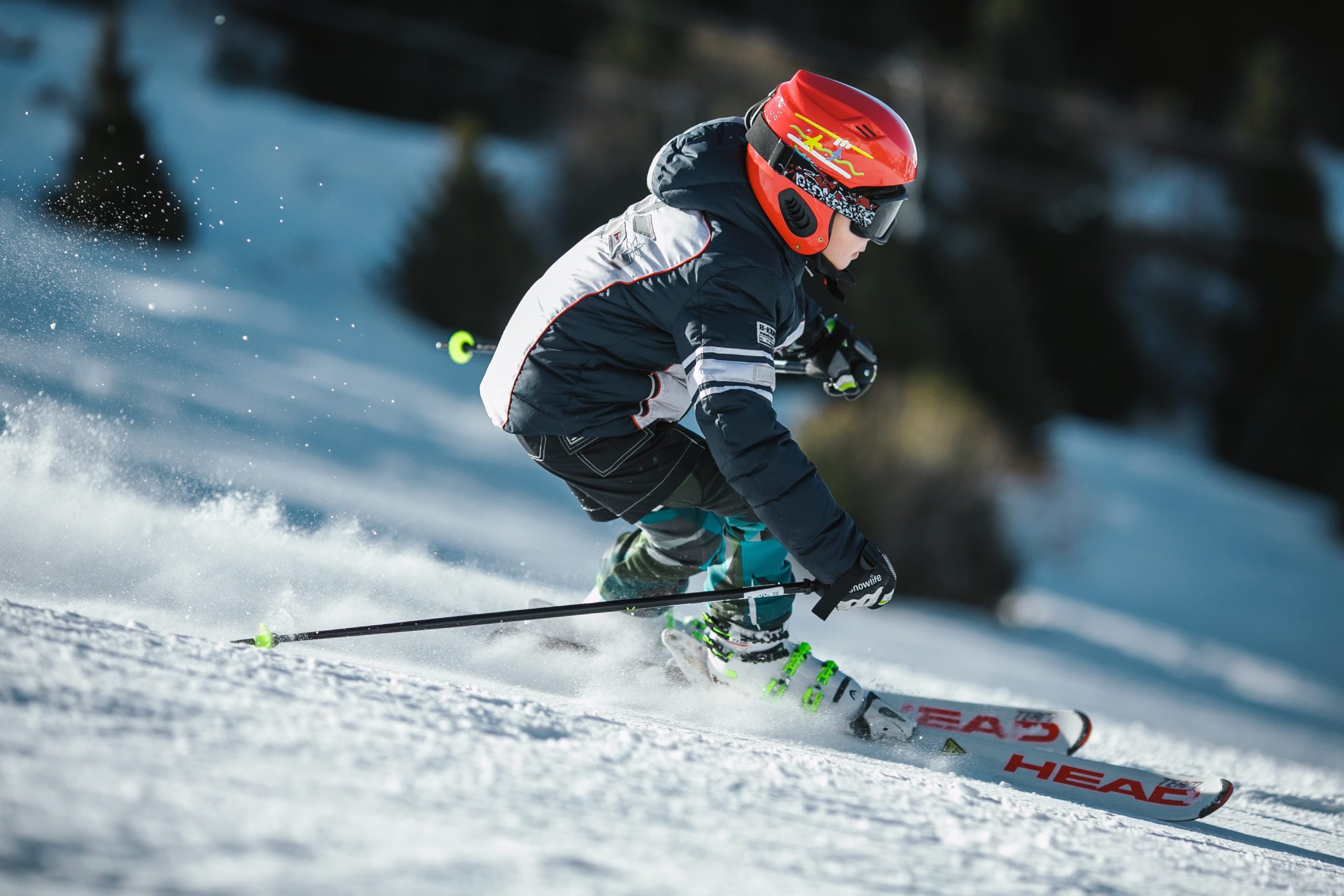
BONUS TIPS
No matter what day, you’ll almost always need ski pants, a ski jacket, gloves, and goggles. In my experience working at a rental shop, I saw many people show up in jeans and a non-waterproof jacket on stormy days, asking if they would need goggles and gloves. The answer is yes, you will.
Another bonus tip for beginners is to try to go on a nice day. I understand that travel plans don’t always align with good weather days, but I’ve seen many beginners spend hundreds of dollars during stormy days when they only last half an hour on the slopes. The lack of gear and bad weather for a first-timer can make people hate skiing.
If you’re new to the ski game, follow these rules for renting gear. It can sometimes be intimidating, or you may feel foolish, but remember that every person skiing has to start somewhere. Don’t take it too seriously!
